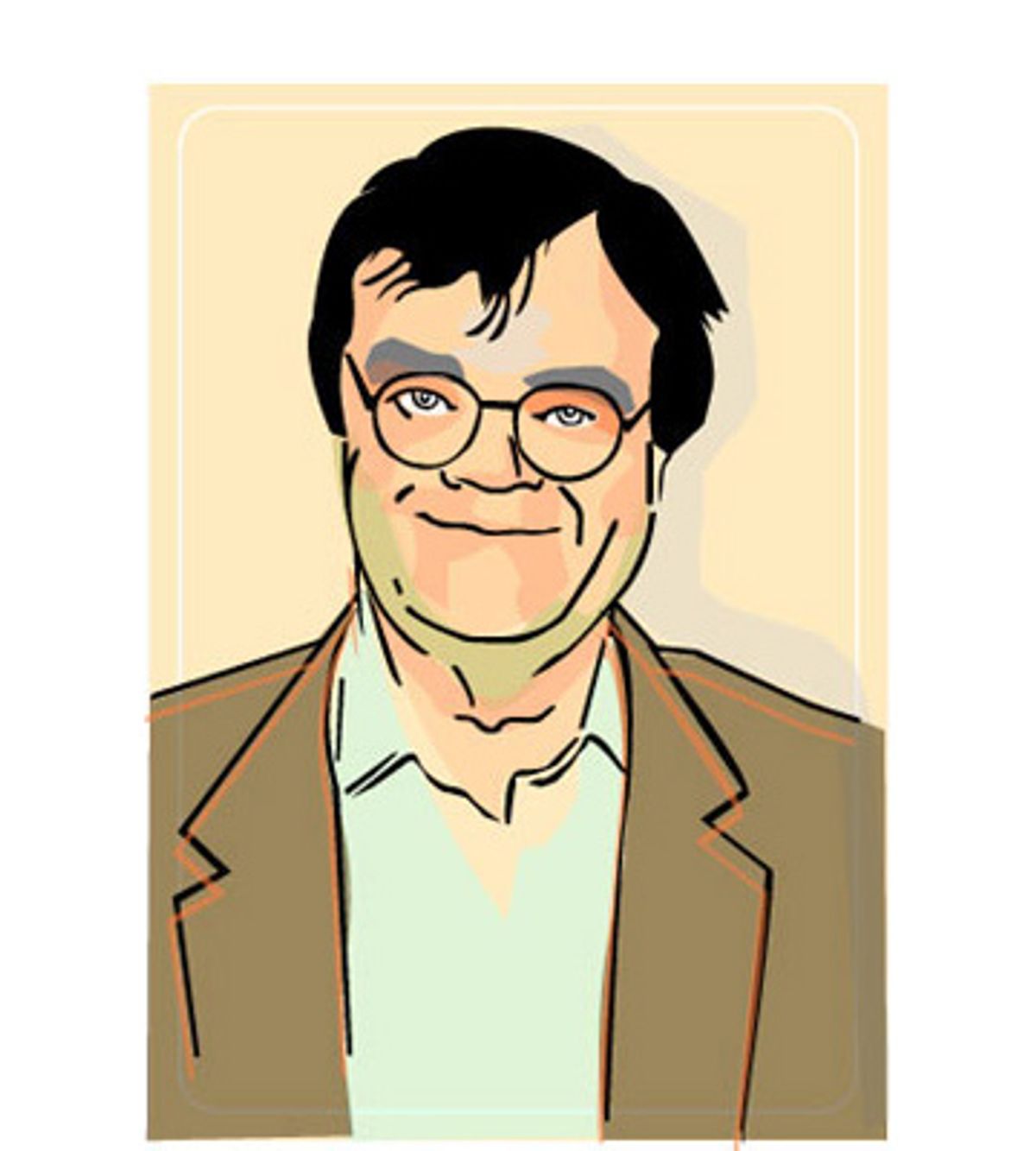My brother Philip died in Wisconsin on Friday while I was in Rome, and after I got my ticket changed to fly back for the memorial service, I went into a church off the Piazza Navona and lit candles for his aching family and stood in the piazza beside a fine fountain, with lots of splashing and nudity, the Fountain of the Four Rivers, which made me think of the Mississippi, where he and I used to skate in winter and once when the wind was whistling down the valley he opened his jacket and held the corners taut and the wind blew him away beyond the island and he didn't come back until after dark.
He died while skating. He fell backward and hit his head and died 12 days later. A heroic thing for a man of 71, dying in action at sport, though I believe he would rather have been in Rome, looking at Bernini churches. He and I almost died together once, canoeing on Lake Superior. We paddled into a deep cave under one of the Apostle Islands, possibly Judas, and explored it, ducking our heads under the low ceiling, and emerged a half-minute before the wake of a distant ore boat came crashing into the cave, which would have busted our heads but good, no need for the EMTs.
He was an engineer, having grown up at a time when boys were still romantic about machinery. Our dad and uncles loved cars and knew how to fix them and also do basic plumbing and wiring and carpentry, so he grew up admiring competence. The incompetent stood and cursed the problem and kicked it and caused more problems. The engineer studied the problem, devised a solution, and when it failed he made intelligent revisions. I never heard my brother curse anything or anybody.
Of all things mechanical, he loved sailboats the most, planing into the wind with a sheet of canvas, a centerboard and a tiller, which he picked up from perusing the Horatio Hornblower novels. When he was a kid, he rigged one of dad's dropcloths to a toboggan and sailed it at tremendous speed down the ice of the Mississippi, a death-defying feat. He switched careers from mechanical to coastal engineering so as to get himself out on boats on Lake Superior and Lake Michigan, purportedly to study thermal runoff from nuclear plants and shore erosion, and he owned a swift sailboat named the Dora Powell after our grandmother.
My brother was her first grandchild and so he was well loved and extensively photographed, a curly-haired boy with dimples and a modest smile, taken against many backdrops since our family moved often in the decade after he was born (1937), renting here and there, squatting with relatives, moving on, which maybe stimulates a keen love of family in a kid, as you keep waving goodbye to your friends, and Philip practiced the delicate art of brotherly love. He always knew what you were doing and he kept his critical opinions to himself. He called me once to ask how I was doing and I knew without his saying so that he knew about some nonsense I was up to and wanted me to stop it and I did stop it without his ever mentioning it. That's how he worked, no motor, just angles. His ties to family went back to his ancestor Elder John Crandall, who preached religious tolerance and peaceful coexistence with the Indians in colonial Rhode Island, and it included his hockey-playing granddaughters and fundamentalist cousins and his lawyer brother and his Chinese granddaughter who was skating with him when he fell.
When your brother dies, your childhood fades, there being one less person to remember it with, and you are left disinherited, unarmed, semi-literate, an exile. It's like losing your computer and there's no backup. (What it's like for the decedent, I can't imagine, though I try to be hopeful.) If I had died (say, by slipping on an emollient spill and whacking my head on a family heirloom anvil), I believe Philip, after decent mourning, would've gone about locating a replacement. If your brother dies, improvise. Someone you run into who maybe doesn't fit the friendship profile but his voice is reedy like your brother's, the gait is similar, he takes his coffee black and his laugh is husky, he starts his sentences with "You know," and the first words out of his mouth are about boats. I didn't run into him in Rome but I'm sure he's out there someplace.
(Garrison Keillor is the author of a new Lake Wobegon novel, "Liberty," published by Viking.)
© 2009 by Garrison Keillor. All rights reserved. Distributed by Tribune Media Services, Inc.



Shares